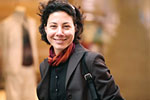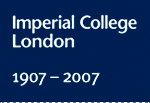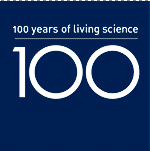CGCA 94th Annual Dinner
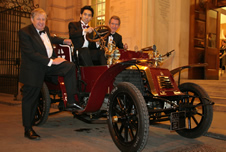 CGCA 94th Annual Dinner and 100th Anniversary Celebration of the formation of Imperial College
CGCA 94th Annual Dinner and 100th Anniversary Celebration of the formation of Imperial College
Tuesday, 6 March 2007, Carpenters’ Livery Hall
This year, CGCA held their annual dinner in Carpenters’ Hall. The Dinner was once again a grand affair, but an extra special occasion this year in that it also celebrated the Centenary of the College’s foundation. It was over subscribed, tickets having been sold out before Christmas, with a waiting list of over 20 for one of the 219 places.
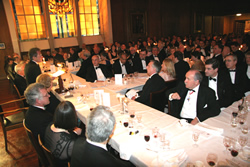 The Principal Speaker was Lord Browne of Madingley, who spoke in his capacity as President of the Royal Academy of Engineering. He spoke of the challenges we face as a nation, how engineers will solve these challenges and the need for more well qualified engineers. He paid tribute to the Rector for leading the College through a period of immense change and development, fully maintaining its position as a world leading place of scientific, engineering and medical education. He concluded by saying that the mission of science and engineering was the application of knowledge to solve problems through invention and creativity. For a hundred years Imperial’s scientists and engineers had been doing just this. Now it fell to the current generation to join with the Royal Academy of Engineering and the engineering institutions to tackle the great challenges of climate change, poverty reduction, health and well-being.
The Principal Speaker was Lord Browne of Madingley, who spoke in his capacity as President of the Royal Academy of Engineering. He spoke of the challenges we face as a nation, how engineers will solve these challenges and the need for more well qualified engineers. He paid tribute to the Rector for leading the College through a period of immense change and development, fully maintaining its position as a world leading place of scientific, engineering and medical education. He concluded by saying that the mission of science and engineering was the application of knowledge to solve problems through invention and creativity. For a hundred years Imperial’s scientists and engineers had been doing just this. Now it fell to the current generation to join with the Royal Academy of Engineering and the engineering institutions to tackle the great challenges of climate change, poverty reduction, health and well-being.
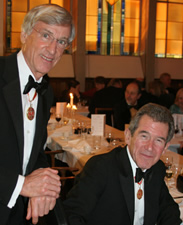 The Rector, in his reply on behalf of the guests, described the foundation of Imperial, the coming together of the three great 19th century institutions, City and Guilds College, the Royal School of Mines and the Royal College of Chemistry. He emphasised that the College had made significant contributions to the world around us, giving examples of the oil testing for the air ministry and developing early aircraft detection devices during the first World War, and the work on the Mulberry Harbours, underwater explosions on submarines and stresses on submarine hulls, as well as work on a radar system during the second World War. Much of this work had been carried out by graduates and staff in Imperial’s engineering departments. He described work of Nobel prize winners associated with Imperial.
The Rector, in his reply on behalf of the guests, described the foundation of Imperial, the coming together of the three great 19th century institutions, City and Guilds College, the Royal School of Mines and the Royal College of Chemistry. He emphasised that the College had made significant contributions to the world around us, giving examples of the oil testing for the air ministry and developing early aircraft detection devices during the first World War, and the work on the Mulberry Harbours, underwater explosions on submarines and stresses on submarine hulls, as well as work on a radar system during the second World War. Much of this work had been carried out by graduates and staff in Imperial’s engineering departments. He described work of Nobel prize winners associated with Imperial.  He concluded by stating that Imperial’s major research goals were in the areas of health, environment and energy, where the solutions lay at the intersection of diverse technologies and disciplines. The College’s Centenary campaign aims of raising £207 million of philanthropic support between 2000-2010, would ensure that Imperial could continue to cultivate and nurture world class students and staff whose contributions improve the world of the future.
He concluded by stating that Imperial’s major research goals were in the areas of health, environment and energy, where the solutions lay at the intersection of diverse technologies and disciplines. The College’s Centenary campaign aims of raising £207 million of philanthropic support between 2000-2010, would ensure that Imperial could continue to cultivate and nurture world class students and staff whose contributions improve the world of the future.
© 2007 Imperial College London
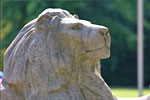
Science and technology have the power to transform the world. Today’s complex challenges demand new approaches, fresh thinking and scientific innovation. Donate now to support research and education at Imperial.
Where your support can make a differenceGive now
